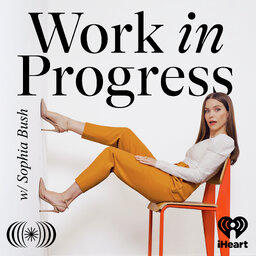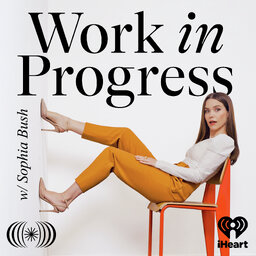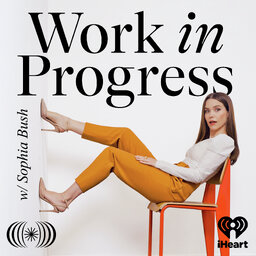Taylor Tomlinson is a phenomenal comedian who’s performed on Late Night, Conan, and Last Comic Standing. Taylor joins Sophia on the podcast to talk about going from performing at churches to performing on Conan, being okay with some peoplenot liking you, learning about yourself in your 20's, and her Netflix special, Quarter-Life Crisis.
 Work in Progress with Sophia Bush
Work in Progress with Sophia Bush


